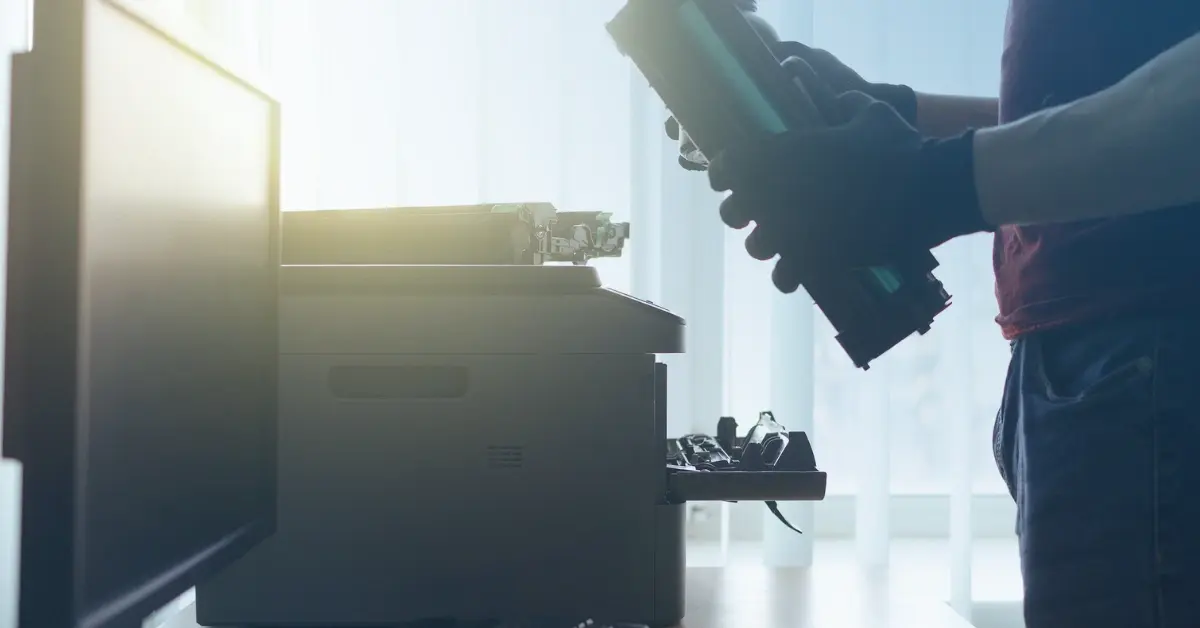Securing Government Transactions: MICR Printing in the Public Sector

Government transactions have always been a target for fraudsters who exploit hidden loopholes within the system to steal. The recent American Rescue Plan developed in 2021 to combat the effects of Covid-19 highlights how prone government transactions are to fraud. Billions of dollars in governmental transactions have been lost due to check fraud, identity theft, and document manipulation. The situation got so bad that the FBI created a specific page to report fraudsters taking advantage of loopholes within the transaction system the government employs. But what are these loopholes or hidden dangers criminals exploit to hijack government transactions?
- The use of Generic Document Printers – Generic printers do not integrate security features such as tray locks or user authentication to prevent fraud. Hence, generic printers are hidden dangers that can be exploited to steal or manipulate sensitive documents.
- Unsecure Document Sharing Processes – Although the adoption of digital transformation solutions is gaining pace in government agencies, many departments still rely on posting checks and documents to their recipients. Unsecure posting and document-sharing processes combined with the use of non-MICR toners are hidden dangers fraudsters or sharks exploit for financial gain.
Understanding the Role of MICR Printing
Sharks in the ocean have long captivated human attention and generated fear. While these apex predators are responsible for a relatively small number of attacks each year, their presence and potential danger cannot be ignored. Similarly, the risks associated with traditional printing methods used in government transactions may go unnoticed but can have severe consequences.
In today's digital age, the security of government transactions is of utmost importance. With vast amounts of sensitive data being exchanged and financial transactions being conducted, ensuring the integrity and authenticity of these transactions is paramount. While advancements in technology have significantly streamlined processes, they have also given rise to new threats and vulnerabilities. One critical aspect of securing government transactions is the use of Magnetic Ink Character Recognition (MICR) printing. When checks do not comply with the standards it can result in rejected checks and unnecessary processing fees.
One of the hidden dangers lies in the potential for unauthorized modifications or alterations of printed documents. Even while implementing MICR, without proper security measures, it becomes relatively easy for fraudsters to tamper with sensitive information, such as payment amounts or recipient details. This can lead to significant financial losses and undermine the trust that citizens place in their government and its systems.
How TROY Group Solutions Help Secure Governmental Transactions
Much like how shark nets protect swimmers from potential harm, TROY Group's patented MICR Toner Secure acts as a barrier against unauthorized modifications. The encoded magnetic ink used in TROY's MICR Toner is resistant to alteration, releasing a red dye when any alteration is attempted, making it nearly impossible for fraudsters to tamper with printed information on a check. No other toner has these capabilities. Moreover, TROY Group's MICR Toner Secure helps government entities combat counterfeiting attempts. Just as sharks can quickly identify prey or objects in the water, this specialized toner allows check-scanning machines to capture vital information accurately and efficiently during processing. This capability significantly reduces the risk of accepting counterfeit documents and ensures the accuracy of data used for critical government processes Furthermore, TROY Group's MICR Toner Secure is compatible with a wide range of printers, making it easily accessible and adaptable for governmental agencies. This ensures a seamless transition to MICR printing without requiring significant investments in new hardware or infrastructure.
Combining TROY Group MICR toners with our MICR printers adds extra layers of security to the printing process. Unlike generic printers, TROY Group printers integrate 15 security measures that include tray locks, monitoring systems, and user authentication features.
Get Started, Beat the Sharks
In conclusion, securing government transactions is a critical priority in the modern world. The hidden dangers associated with not using MICR printing in the public and government sectors can have severe consequences, including financial losses, fraud, and reputational damage. Just as sharks pose potential risks in the ocean, the vulnerabilities in traditional printing methods can harm the integrity and authenticity of critical documents. TROY Group's MICR toner provides an effective solution by introducing magnetic properties that prevent tampering, facilitate accurate scanning, and enhance the overall security of government transactions. By incorporating MICR printing into your operations, organizations within the public sector can ensure both the confidentiality and reliability of their transactions, ultimately safeguarding the trust of citizens.
Related Posts

What is UV Printing? UV Curable Inks for Packaging
Ultraviolet, or UV printing is an advanced digital technology that cures specially designed inks using UV light. This process creates sleek, vibrant designs that dry instantly,..

Here's How to Beat Upcoming Postage Rate Increases
In 2024, a notable increase in postage costs became a reality. With postage increases expected to occur multiple times a year, it's important to be prepared for what's coming.

What is MICR Toner? A Guide for Check Printing
What is MICR? MICR stands for Magentic Ink Character Recognition, and it plays a critical role in check printing. If you're printing checks for your business, you should always be..



Leave a Reply